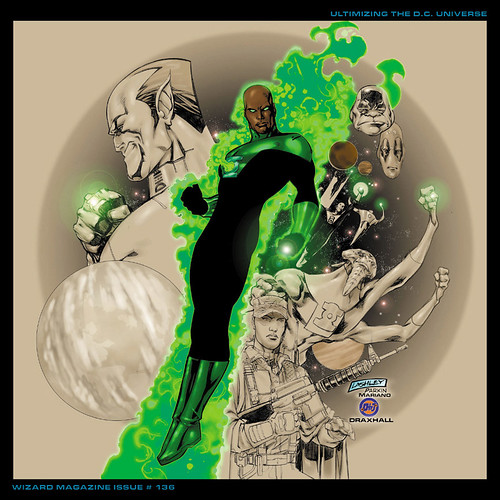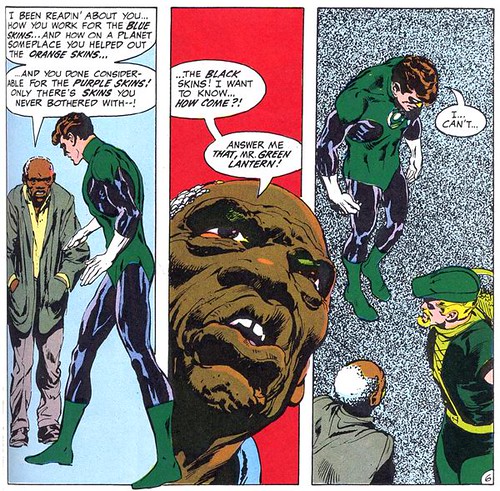In keeping with the Halloween theme, I'm going to talk about a film with a rather frightening premise. I recently saw The Confederate States of America which is a fictional "mock-umentary" about what would have happened if the South won the Civil War (er.. the War of Northern Aggression) and slavery continued into 21st century America.
The film definitely had its high points, but to be honest it was not very impressive. The historical logic wasn't very persuasive. For example, originally, the South fought in order to secede from the Union but in the film, the South actually takes over the North. Not only that, the Confederate States of America then expands to the south and eventually absorbs Latin America as well. But to be fair, in the DVD interview with Kevin Willmott, the film's writer and director, he makes clear that the film was more about metaphor than historical realism. In our country there has always been a tension between the democratic, egalitarian, just principles of the "United States" and the racist, exclusionary, hierarchical, expansionist tendencies of the "Confederate States". Wlilmott's film was intended to provide a satirical look at those "Confederate" tendencies by taking them to an extreme.
For me, the most impressive aspect of the movie were the fictional commercial breaks which featured blatantly racist ads for things like the Coon Chicken Inn, Sambo motor oil or Niggerhair cigarettes. The "punchline" is that most of the ads (including those just mentioned) represent REAL products which were sold in our United States into the 40's and 50's.
Another of the more impressive commercials was a promo for a show called "Runaway" (clearly based on Cops). In the C.S.A, most vibrant expressions of Black culture had long since migrated north to Canada, so the reggae theme of "Bad Boys" was replaced by an upbeat song with more of a country twang. But there were still the same images of Black and Latino males running from white men, being restrained by officers, having guns pointed at them, etc. The obvious suggestion was that the police are just modern-day slavecatchers.
It reminded me of a spoken word piece by Detroit poet, Versiz where he describes an encounter with a traffic cop who stopped him and asked:
Of course it is fairly easy to cite other examples of artists and political writers who see similarities between the police and the prison industrial complex on the one hand, and slavery and other forms of oppression on the other. (But that's a meaty subject in itself and I'll have to explore it over several posts)
For other treatments of alternative history:
For Want of a Nail
The Guns of the South
Harry Turtledove
Bring the Jubilee
The Man in the High Castle
It Happened Here
The film definitely had its high points, but to be honest it was not very impressive. The historical logic wasn't very persuasive. For example, originally, the South fought in order to secede from the Union but in the film, the South actually takes over the North. Not only that, the Confederate States of America then expands to the south and eventually absorbs Latin America as well. But to be fair, in the DVD interview with Kevin Willmott, the film's writer and director, he makes clear that the film was more about metaphor than historical realism. In our country there has always been a tension between the democratic, egalitarian, just principles of the "United States" and the racist, exclusionary, hierarchical, expansionist tendencies of the "Confederate States". Wlilmott's film was intended to provide a satirical look at those "Confederate" tendencies by taking them to an extreme.
For me, the most impressive aspect of the movie were the fictional commercial breaks which featured blatantly racist ads for things like the Coon Chicken Inn, Sambo motor oil or Niggerhair cigarettes. The "punchline" is that most of the ads (including those just mentioned) represent REAL products which were sold in our United States into the 40's and 50's.
Another of the more impressive commercials was a promo for a show called "Runaway" (clearly based on Cops). In the C.S.A, most vibrant expressions of Black culture had long since migrated north to Canada, so the reggae theme of "Bad Boys" was replaced by an upbeat song with more of a country twang. But there were still the same images of Black and Latino males running from white men, being restrained by officers, having guns pointed at them, etc. The obvious suggestion was that the police are just modern-day slavecatchers.
It reminded me of a spoken word piece by Detroit poet, Versiz where he describes an encounter with a traffic cop who stopped him and asked:
"So, do you know why I'm pulling you over?"
I asked if he wanted the short answer or the long one. He of course chose the wrong one so I had to give it to him. I had to give it to him the way they always give it to me. With no vaseline and with a straight face.
So I told him... "You are pulling me over because there was a corrupt system set in place used to manipulate and control the underclass through fear and intimidation, a system that you are an agent for. Now, whether or not you know your role remains to be seen so I guess the most important question is: Dude, Do you know why you are pulling me over?"
I couldn't help but smirk as I was being dragged out of the vehicle.
Of course it is fairly easy to cite other examples of artists and political writers who see similarities between the police and the prison industrial complex on the one hand, and slavery and other forms of oppression on the other. (But that's a meaty subject in itself and I'll have to explore it over several posts)
For other treatments of alternative history:
For Want of a Nail
The Guns of the South
Harry Turtledove
Bring the Jubilee
The Man in the High Castle
It Happened Here


